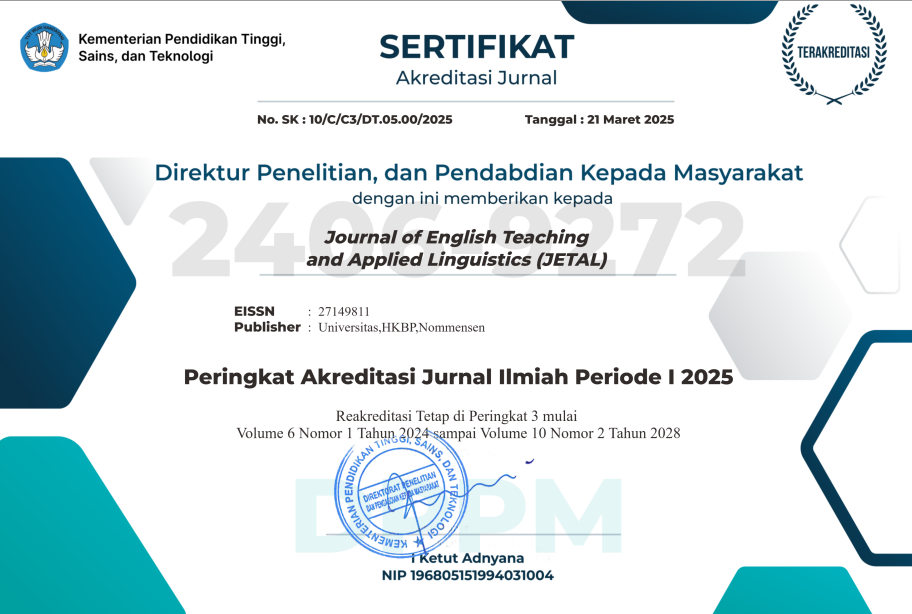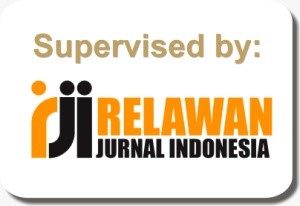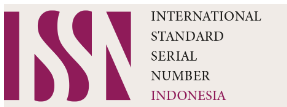Unlocking the Power of ChatGPT: Students’ Interest in Asian Parliamentary Debate Classroom
Abstract
This study aims to measure students’ interest in using ChatGPT to teach English using the debate clinic method to improve students’ speaking skills. Descriptive quantitative research involving 14 students of the Islamic Religious Education Study Program, STAI DDI Pinrang, used a questionnaire to measure four indicators of learning interest: feelings of pleasure, interest, paying attention, and involvement. The results revealed that the student’s average score of learning interest reached 77, indicating a relatively high interest. Students’ participation in formulating and refuting arguments during debates proves that ChatGPT positively impacts the development of students’ critical thinking skills. Therefore, this study contributes to developing technology-based pedagogy, especially in academic debate. Integrating ChatGPT in the debate process allows teachers to create a more dynamic and interactive learning environment where students can be more actively involved. However, the study has several limitations. First, the limited number of samples, so generalizing the study results may not apply to a broader population. Additionally, it only focused on one study program at one institution, so the results may not reflect the situation at other institutions. Therefore, further research can explore other factors that influence learning interest, such as pedagogical aspects and technology used in the learning process.
References
Aclan, E. M., & Abd Aziz, N. H. (2015). Exploring parliamentary debate as a pedagogical tool to develop english communication skills in EFL/ESL classrooms. International Journal of Applied Linguistics and English Literature, 4(2). https://doi.org/10.7575/aiac.ijalel.v.4n.2p.1
Almusaed, A., Almssad, A., Yitmen, I., & Homod, R. Z. (2023). Enhancing Student Engagement: Harnessing “AIED”’s Power in Hybrid Education—A Review Analysis. In Education Sciences (Vol. 13, Issue 7). https://doi.org/10.3390/educsci13070632
Aydin Yildiz, T. (2023). The Impact of ChatGPT on Language Learners’ Motivation. Journal of Teacher Education and Lifelong Learning, 5(2). https://doi.org/10.51535/tell.1314355
Azarova, I., Ivanytska, I., Nykyforenko, I., & Vasylchenko, O. (2021). Interactive Online Teaching of Phonetic Skills: Introductory Phonetic Course. Arab World English Journal, 7(1). https://doi.org/10.24093/awej/call7.7
Bahruddin, U., Halomoan, & Sahid, M. M. (2020). Implementation of Hots in Debate Strategy To Improve the Ability of Speaking Arabic Among Students. Solid State Technology, 63(4).
Creswell, J. (2014). Research Design: Qualitative, Quantitative and Mixed Methods Approaches (5th ed.). Sage Publications.
Doró, K. (2014). Why Do Students Plagiarize? Efl Undergraduates’ Views on the Reasons Behind Plagiarism. Romanian Journal of English Studies, 11(1). https://doi.org/10.2478/rjes-2014-0029
Farrokhnia, M., Banihashem, S. K., Noroozi, O., & Wals, A. (2024). A SWOT analysis of ChatGPT: Implications for educational practice and research. Innovations in Education and Teaching International, 61(3). https://doi.org/10.1080/14703297.2023.2195846
Fauziyah, R., Budimansyah, D., Muthaqin, D. I., Kunci, K., Karakter, :, & Krits, K. B. (2020). Srengthening Character Education Trough Debate Models to Development Students’ Critical Thinking Skills. Jurnal Civicus, 20(1).
Fiialka, S., Kornieva, Z., & Honcharuk, T. (2023). ChatGPT in Ukrainian Education: Problems and Prospects. International Journal of Emerging Technologies in Learning, 18(17). https://doi.org/10.3991/ijet.v18i17.42215
Firman, E. (2023). Debaters’ Critical Thinking Skills In Reading Text. JUPE : Jurnal Pendidikan Mandala, 8(2). https://doi.org/10.58258/jupe.v8i2.5275
Hodges, D. A. (2019). Third Edition Handbook for Competitive Debating: Asian Parliamentary Format. Music in the Human Experience.
Hromova, N., Kryvych, M., Chernihivska, N., Vinnytska, T., & Bloshchynskyi, I. (2022). Forming Critical Reading Skills in a Low-Intermediate Class of English. World Journal of English Language, 12(1). https://doi.org/10.5430/WJEL.V12N1P74
Kinnear, B., Santen, S. A., Kelleher, M., Martini, A., Ferris, S., Edje, L., Warm, E. J., & Schumacher, D. J. (2023). How Does TIMELESS Training Impact Resident Motivation for Learning, Assessment, and Feedback? Evaluating a Competency-Based Time-Variable Training Pilot. Academic Medicine, 98(7). https://doi.org/10.1097/ACM.0000000000005147
Kohnke, L., Moorhouse, B. L., & Zou, D. (2023). ChatGPT for Language Teaching and Learning. In RELC Journal (Vol. 54, Issue 2). https://doi.org/10.1177/00336882231162868
Kuşcu, O., Pamuk, A. E., Sütay Süslü, N., & Hosal, S. (2023). Is ChatGPT accurate and reliable in answering questions regarding head and neck cancer? Frontiers in Oncology, 13. https://doi.org/10.3389/fonc.2023.1256459
Abel, M., & Bäuml, K. H. T. (2020). Would you like to learn more? Retrieval practice plus feedback can increase motivation to keep on studying. Cognition, 201. https://doi.org/10.1016/j.cognition.2020.104316
Aclan, E. M., & Abd Aziz, N. H. (2015). Exploring parliamentary debate as a pedagogical tool to develop english communication skills in EFL/ESL classrooms. International Journal of Applied Linguistics and English Literature, 4(2). https://doi.org/10.7575/aiac.ijalel.v.4n.2p.1
Almusaed, A., Almssad, A., Yitmen, I., & Homod, R. Z. (2023). Enhancing Student Engagement: Harnessing “AIED”’s Power in Hybrid Education—A Review Analysis. In Education Sciences (Vol. 13, Issue 7). https://doi.org/10.3390/educsci13070632
Aydin Yildiz, T. (2023). The Impact of ChatGPT on Language Learners’ Motivation. Journal of Teacher Education and Lifelong Learning, 5(2). https://doi.org/10.51535/tell.1314355
Azarova, I., Ivanytska, I., Nykyforenko, I., & Vasylchenko, O. (2021). Interactive Online Teaching of Phonetic Skills: Introductory Phonetic Course. Arab World English Journal, 7(1). https://doi.org/10.24093/awej/call7.7
Bahruddin, U., Halomoan, & Sahid, M. M. (2020). Implementation of Hots in Debate Strategy To Improve the Ability of Speaking Arabic Among Students. Solid State Technology, 63(4).
Creswell, J. (2014). Research Design: Qualitative, Quantitative and Mixed Methods Approaches (5th ed.). Sage Publications.
Doró, K. (2014). Why Do Students Plagiarize? Efl Undergraduates’ Views on the Reasons Behind Plagiarism. Romanian Journal of English Studies, 11(1). https://doi.org/10.2478/rjes-2014-0029
Farrokhnia, M., Banihashem, S. K., Noroozi, O., & Wals, A. (2024). A SWOT analysis of ChatGPT: Implications for educational practice and research. Innovations in Education and Teaching International, 61(3). https://doi.org/10.1080/14703297.2023.2195846
Fauziyah, R., Budimansyah, D., Muthaqin, D. I., Kunci, K., Karakter, :, & Krits, K. B. (2020). Srengthening Character Education Trough Debate Models to Development Students’ Critical Thinking Skills. Jurnal Civicus, 20(1).
Fiialka, S., Kornieva, Z., & Honcharuk, T. (2023). ChatGPT in Ukrainian Education: Problems and Prospects. International Journal of Emerging Technologies in Learning, 18(17). https://doi.org/10.3991/ijet.v18i17.42215
Firman, E. (2023). Debaters’ Critical Thinking Skills In Reading Text. JUPE : Jurnal Pendidikan Mandala, 8(2). https://doi.org/10.58258/jupe.v8i2.5275
Hodges, D. A. (2019). Third Edition Handbook for Competitive Debating: Asian Parliamentary Format. Music in the Human Experience.
Hromova, N., Kryvych, M., Chernihivska, N., Vinnytska, T., & Bloshchynskyi, I. (2022). Forming Critical Reading Skills in a Low-Intermediate Class of English. World Journal of English Language, 12(1). https://doi.org/10.5430/WJEL.V12N1P74
Kinnear, B., Santen, S. A., Kelleher, M., Martini, A., Ferris, S., Edje, L., Warm, E. J., & Schumacher, D. J. (2023). How Does TIMELESS Training Impact Resident Motivation for Learning, Assessment, and Feedback? Evaluating a Competency-Based Time-Variable Training Pilot. Academic Medicine, 98(7). https://doi.org/10.1097/ACM.0000000000005147
Kohnke, L., Moorhouse, B. L., & Zou, D. (2023). ChatGPT for Language Teaching and Learning. In RELC Journal (Vol. 54, Issue 2). https://doi.org/10.1177/00336882231162868
Kuşcu, O., Pamuk, A. E., Sütay Süslü, N., & Hosal, S. (2023). Is ChatGPT accurate and reliable in answering questions regarding head and neck cancer? Frontiers in Oncology, 13. https://doi.org/10.3389/fonc.2023.1256459
Latif, R., Mumtaz, S., Mumtaz, R., & Hussain, A. (2018). A comparison of debate and role play in enhancing critical thinking and communication skills of medical students during problem based learning. Biochemistry and Molecular Biology Education, 46(4). https://doi.org/10.1002/bmb.21124
Lestari, S. A. I., Ahmad, Y. B., & Sumarta, S. (2021). EFL Students’ Perception of Speaking Course through Debating Process during the Pandemic. INTERACTION: Jurnal Pendidikan Bahasa, 8(2). https://doi.org/10.36232/jurnalpendidikanbahasa.v8i2.1359
Ling, J. H., Lim, Y. T., Leong, W. K., & Sia, H. T. (2023). Learning about Concrete-Filled Tube Using ChatGPT. Journal of Civil Engineering, 38(1). https://doi.org/10.12962/j20861206.v38i1.16470
Liu, B., & Lu, Z. (2023). Design of Spoken English Teaching Based on Artificial Intelligence Educational Robots and Wireless Network Technology. EAI Endorsed Transactions on Scalable Information Systems, 10(4). https://doi.org/10.4108/eetsis.v10i3.3048
Maria Ulfa, S., & Arief Wahyudi, M. (2023). Students’ difficulties in writing an argumentative essay: a qualitative study of EFL learners in a writing class. English Teaching Journal: A Journal of English Literature, Linguistics, and Education, 11(1).
Mubaraq, Y. F. (2016). Debating Techniques in Language Learning to Trigger Students’ Communication in English and Critical Thinking. STILISTIKA: Jurnal Bahasa, Sastra, Dan Pengajarannya, 1(2). https://doi.org/10.33654/sti.v1i2.369
Murtiningsih, T., & Lisnawati, I. (2022). Creating English Environment at Elementary School in Barito Kuala, south Kalimantan. OMNICODE Journal (Omnicompetence Community Developement Journal), 1(1). https://doi.org/10.55756/omnicode.v1i1.82
Nugroho, A., Andriyanti, E., Widodo, P., & Mutiaraningrum, I. (2024). Students’ appraisals post-ChatGPT use: Students’ narrative after using ChatGPT for writing. Innovations in Education and Teaching International. https://doi.org/10.1080/14703297.2024.2319184
Praphan, P. W., & Praphan, K. (2023). AI technologies in the ESL/EFL writing classroom: The villain or the champion? In Journal of Second Language Writing (Vol. 62). https://doi.org/10.1016/j.jslw.2023.101072
Rasyid, A., & Namrullah, Z. (2021). Asian Parliamentary Debate Simulation in EFL Classroom. ASELS_2021. https://doi.org/10.51773/asels2021.v1i1.5
Rawashdeh, B., Kim, J., AlRyalat, S. A., Prasad, R., & Cooper, M. (2023). ChatGPT and Artificial Intelligence in Transplantation Research: Is It Always Correct? Cureus. https://doi.org/10.7759/cureus.42150
Sullivan, M., Kelly, A., & McLaughlan, P. (2023). ChatGPT in higher education: Considerations for academic integrity and student learning. Journal of Applied Learning and Teaching, 6(1). https://doi.org/10.37074/jalt.2023.6.1.17
Wahyuni, S., Qamariah, H., Gani, S. A., Yusuf, Y. Q., & Syahputra, M. (2019). Critical Thinking Skills: British Parliamentary Debate System to Improve English as Foreign Language (EFL) Students’ Critical Speaking. Budapest International Research and Critics Institute (BIRCI-Journal) : Humanities and Social Sciences, 2(3). https://doi.org/10.33258/birci.v2i3.444
Wang, L. (2021). Critical thinking sub-skills in english debate. Theory and Practice in Language Studies, 11(12). https://doi.org/10.17507/tpls.1112.15
Yến, T., & Tran, T. M. H. (2022). Promoting Critical Thinking Ability for High School Students through Debating Activities. Journal of English Language Teaching and Applied Linguistics, 4(2). https://doi.org/10.32996/jeltal.2022.4.2.3
Zhai, X. (2023). ChatGPT User Experience: Implications for Education. SSRN Electronic Journal. https://doi.org/10.2139/ssrn.4312418

This work is licensed under a Creative Commons Attribution-ShareAlike 4.0 International License.
Authors retain copyright and grant the journal right of first publication with the work simultaneously licensed under a Creative Commons Attribution-ShareAlike 4.0 International License (CC BY-SA 4.0) that allows others to share the work with an acknowledgment of the work's authorship and initial publication in this journal.
Authors are able to enter into separate, additional contractual arrangements for the non-exclusive distribution of the journal's published version of the work (e.g., post it to an institutional repository or publish it in a book), with an acknowledgment of its initial publication in this journal.
Authors are permitted and encouraged to post their work online (e.g., in institutional repositories or on their website) prior to and during the submission process, as it can lead to productive exchanges, as well as earlier and greater citation of published work (See The Effect of Open Access).






